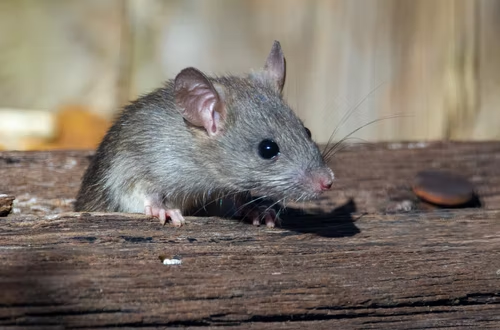Photo by Joshua J. Cotten on Unsplash
When you come face to face with a mouse in your home, its tiny innocent-looking face might leave you with second thoughts about exterminating it. Don’t be fooled by the cuteness though. They aren’t as innocent as they’d like you to think.
Mice, as part of the rodent family, aren’t just nuisances. They also pose a major health risk to everyone in the household. Additionally, they can cause considerable damage to your home if they’re left to run wild. If you’re wondering how to get rid of mice then this article is for you.
Why Do Mice Move Into Homes?
It’s no secret that the last few years have seen an increase in the number of mice found in eastern Australian homes, gardens and farmlands. Essentially, there are three main reasons mice will move into your home.
- Shelter: As with any other creature on the planet, mice need shelter. During the winter months, they’ll make their way into homes to find warmth.
- Food: Surprisingly for their small size, mice tend to eat a lot. Your home is appealing because there’s a constant supply of food. Crumbs, pet food standing around, cereal and rice bags they can tear open and so many more accessible options make your home a welcome refuge.
- Nesting materials: A mouse has a few simple goals in life – eat, nest and have babies. That means they’re constantly on the lookout for nesting materials. Some common items they like to use to create their nests include shredded paper, pet hair, insulation and even cotton. They’ve also been known to shred plastic bags. All these they’ll find in your home.
What Damage Can a Mouse Do In Your Home?
There are several reasons why rodents of any kind shouldn’t live in your home. Here are a few of the top dangers:
1. Damage to Electric Wires
If you’ve ever had a rodent problem, you’ll know they chew everything. And that includes electrical wires. Once they chew through the protective cover, these wires become a risk for causing electrical fires.
2. Contaminated Food
Mice will nibble on anything they find. Their razor-sharp teeth can easily chew through the plastic bags or cardboard boxes in your grocery cupboard. While they may not eat the whole bag of cereal, they will contaminate it as their saliva comes in contact with the food. Since their diseases get transferred through their saliva, it’s dangerous for your family’s health.
3. Destroy Attic Insulation
Rodents love the warmth and solitude of an attic or roof space. They also enjoy the insulation up there because it makes great nesting materials. Additionally, their urine and faeces fester up there and can cause breathing problems for the humans and animals down below.
4. A Host of Diseases
Mice and other rodents are notorious for carrying diseases and viruses that are harmful to humans and pets. There are over 35 diseases spread from rodents to humans and pets, including:
- Hantavirus
- Leptospirosis
- Salmonella
- Lymphocytic Choriomeningitis
Expert Tips to Get Rid of Mice in or Around Your Home
The golden rule with rodents is that you can never assume there’s only one. Like cockroaches and termites, they notify their whole colony when they’ve found a suitable home. Follow these simple guidelines to get rid of mice in your home.
With the help of different means like web search or from recommendations of friends and family anyone can find out the pest control services near you when you put on your device location you will get the localized list of best services.
- Remove food sources: Store grain foods in airtight or glass containers. This includes your bag of dog or cat food. Clean counters often and vacuum or sweep up spills as soon as they occur.
- Seal entry points: Since they’re so small, mice only need tiny gaps to get into your home. To avoid this, seal any cracks or openings they could squeeze through.
- Use essential oils: Mice hate strong smells such as peppermint or eucalyptus essential oil. Simply soak cotton balls in one of these oils and place them in areas where you’ve seen mice or their droppings. Drawers, cupboards and under sinks are popular places to start.
- Invest in snap traps: While many people regard this as inhumane, conventional snap traps are often the best way to rid your home of a large infestation. Rodents die on contact and there’s no risk of them contaminating your space further.
- Look out for the signs: Some of the signs to look out for include droppings (little brown pellets), a strong musty smell (urine) and shredded paper or other materials. Call professional exterminators if you realise there’s a problem.
- Speak to your pest controller: When you arrange your yearly termite inspection, it’s a good idea to also discuss mouse-proofing your home and your property with your pest control contractor.
Final Thought
Don’t be misled by their tiny size or silly little faces – mice are no good for your home, your family or the food stored in your cupboards. Avoid suffering thousands of dollars of damage by dealing with your mouse problem as soon as you see the tell-tale signs. Keep your family and your pets safe by asking your local pest control contractor for the best way to keep your home mouse free!
 BESTCITYTRIPS
BESTCITYTRIPS




